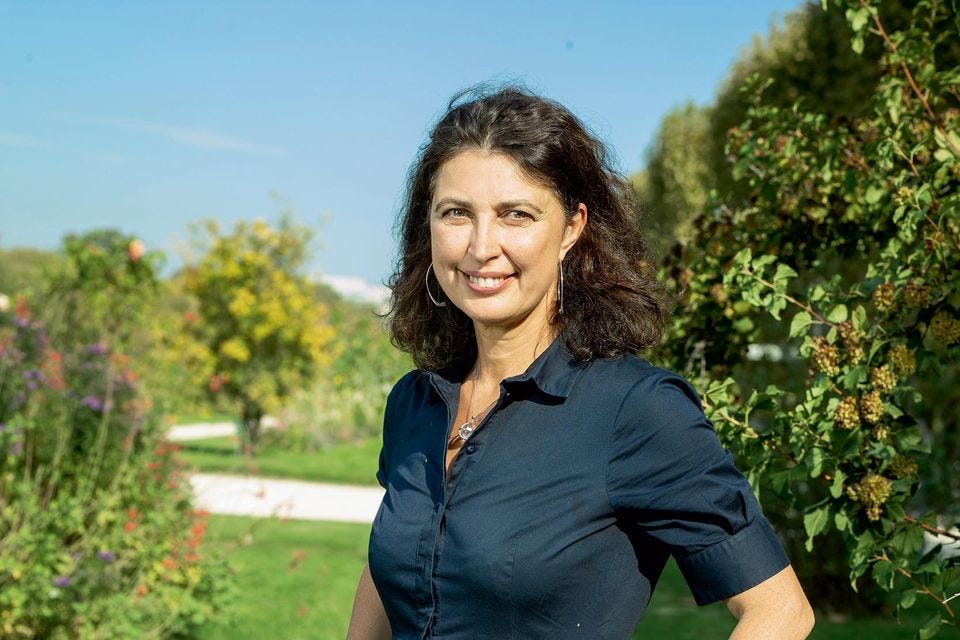Vice President Andreea Koenig discusses the new French professional league
France made a significant move in the summer of 2024 to professionalise it's top division, with a host of new regulations and lessons taken from others who went before them...
If you’re not a follower of French domestic football, you may have missed the news that in the summer just passed, the league previously known as Division 1 became the Premiere Ligue, with Arkema remaining as a primary sponsor. Divison 2 has also been re-branded as the Seconde Ligue.
Why? The clue is in the name, France now has a premier professional league at the top of its women’s football pyramid.
Given Lyon’s stranglehold over Europe for many a year gone by, combined with PSG’s financial riches, you’d be forgiven for thinking France had always had a strong foundation, but below the top two, it’s been a struggle over the years for many to compete, with many lop-sided scorelines when facing either of the nation’s two giants of the women’s game.
The changes have been equally substantial as they have significant, and even if it doesn’t mean the progress will be evident overnight, those involved are keen to stress it’s only the beginning of a longer-term project.
The budget for the two leagues under the new Ligue Feminine de Football Professionel banner has gone up 33% from the 2023/24 season to £10m euros, while it is mandatory that each club must now have a minimum of 11 full-time players on paid professional contracts, while in the Seconde Ligue it’s 11 part-time contracts.
It means there are now around 230 full-time players in the Première Ligue, while each club is allowed to sign a fourth non-EU player to its squad, and must have 11 full-time players in their squads, though the latter is not linked to club licencing rules and is a wider rule.
The new structure is headed up Jean-Michel Aulas, long-time President of Lyon’s women’s team, which he invested in significantly from 2004 onwards, turning them into one of the powerhouses of the women’s game.
Check out over 100 more unique stories in WFC’s Premium section, available for just £45 for 12 months, paid in one go, or a £6 a month rolling subscription.
All subscriptions come with a 7-day free trial to allow you to explore our full archive.
Plus, guarantee you everything that is to come over the next 12 months…
Beneath him, he employed a set of people well-versed to help run a new professional league, including Vice President Andreea Koenig, a former Executive Director for the likes of Bank of America, Goldman Sachs and J.P. Morgan.
“We are probably where the Women’s Super League was in about 2018,” says Koenig. “The league only became professional in July. We’re still within the FFF and rely on their funding, we don’t have a body like WPLL [Women’s Professional Leagues Limited] behind it, but the idea is to fully professionalise the clubs and the game.
“Why I think it’s one of the most interesting projects is we’ve been able to look at all the leagues in all the countries and steal the best practices, while avoiding what’s been proven not to work.”
She continues, “For example, we looked at basketball in France. They have something we really like; they have finances set aside for certain achievements to incentivise teams. For example, if you’re a team in the top three attendances in the league, they get more money for working hard to increase their attendances. That is the incentive.
“We request a minimum in the licence in terms of staffing, infrastructure, training facilities for players – that is the obligation..., but we must be careful not to ask for too much because we don’t want a situation like what happened with Reading in England. We try to be mindful and have the right balance between incentive and obligation, and we’re also very mindful we’re doing this in a year which is difficult for the men’s game here in France.
Check out some other in-depth interviews with people working behind the scenes in the women’s game…
Keep reading with a 7-day free trial
Subscribe to Women's Football Chronicles to keep reading this post and get 7 days of free access to the full post archives.








